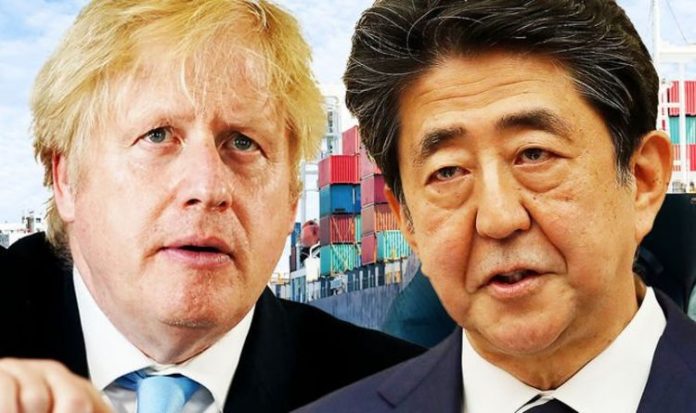Japanese Prime Minister Shinzo Abe has announced he will step down after a record seven years and eight months, citing ill-health after a recurrence of ulcerative colitis. Mr Abe made the announcement of his resignation in a news conference on Friday, in which he addressed his health after two recent hospital visits. The Japanese Prime Minister said he wanted to avoid causing problems to the government because of his worsening condition.
He said: “I have decided to step down from the post of the Prime Minister.
“I cannot be Prime Minister if I cannot make the best decisions for the people.”
Mr Abe declined to comment on who might replace him as LDP leader and Prime Minister.
The sudden resignation without a doubt sparks political uncertainty – and not just for Japan, as it could also put into question Britain’s membership in the Comprehensive and Progressive Agreement for Trans-Pacific Partnership (CPTPP).
In 2018, the 65-year-old leader said Britain would be welcomed into CPTPP with “open arms” after it leaves the EU.
Mr Abe told the Financial Times that while the UK would lose its role as a gateway to Europe after Brexit, it would retain its “global strength”.
The CPTPP is a high-quality free trade agreement which binds together Australia, New Zealand, Canada, Japan, Singapore, Vietnam, Mexico, Malaysia, Peru, Chile and Brunei.
It covers nearly 14 percent of the global economy.
JUST IN: Poland ‘problematic member’ in EU’s fight for future
However, US participation was scrapped by President Donald Trump on his third day in office.
With the US having shunned the dream of a trading bloc that would have accounted for 40 percent of world trade, it was Japan that took the lead in making the TPP a reality.
Mr Abe’s successor might not be as eager as he was to welcome the UK into the free trade area.







